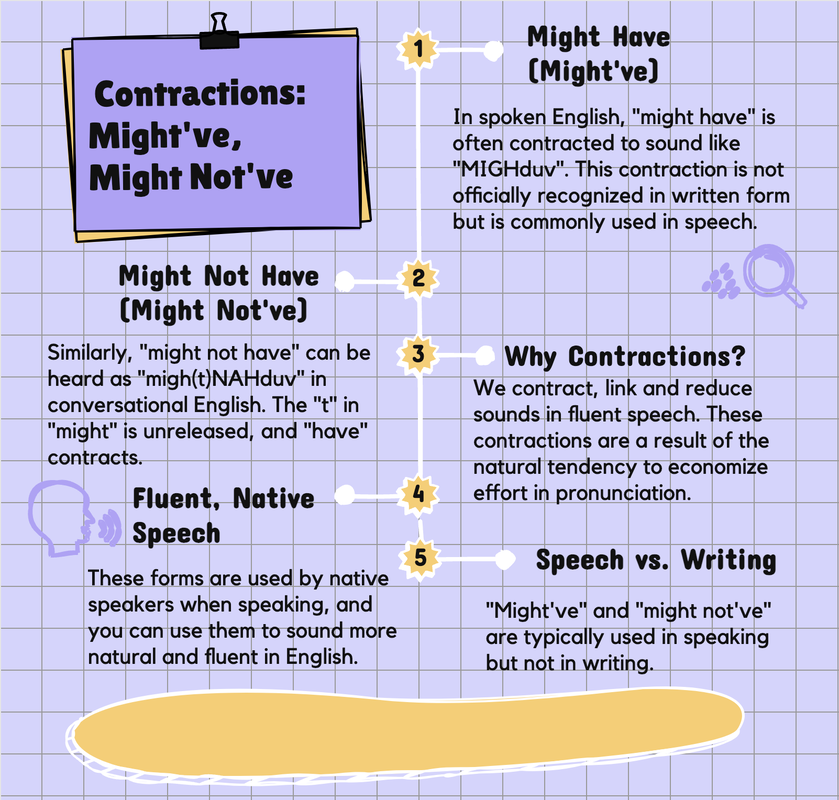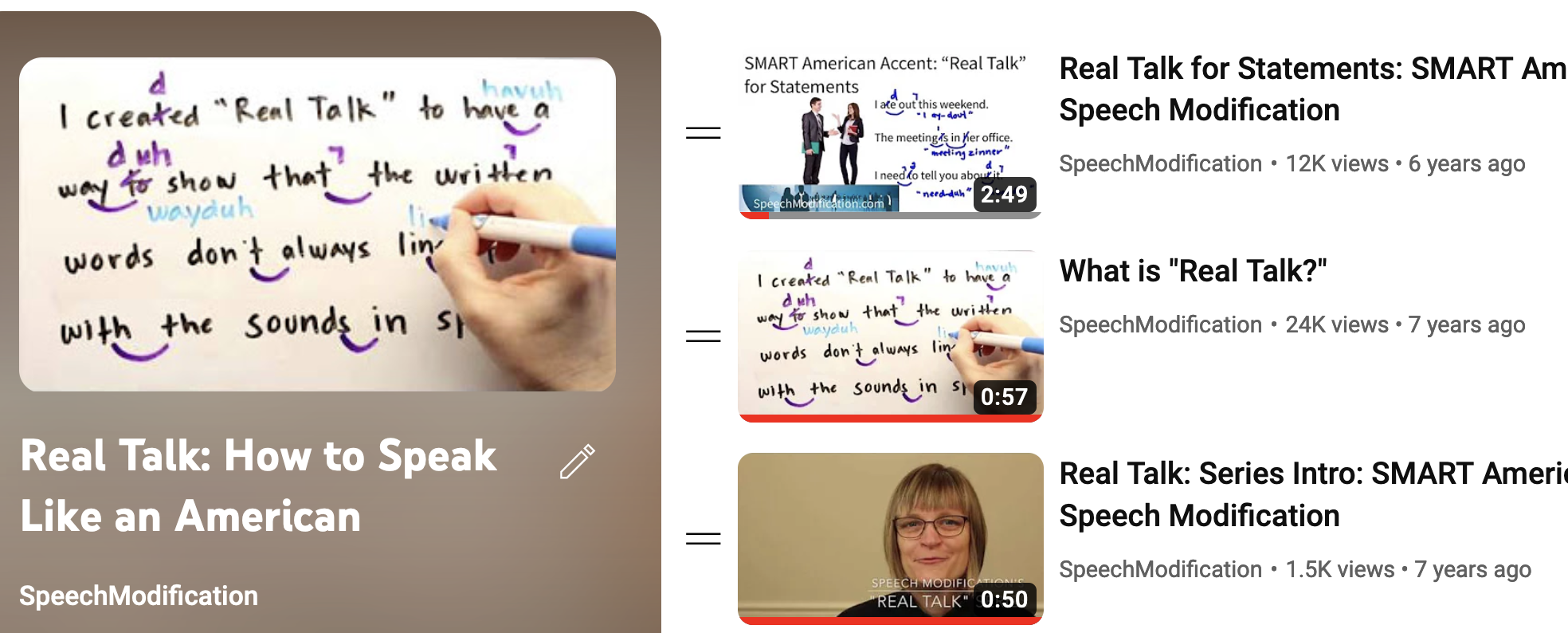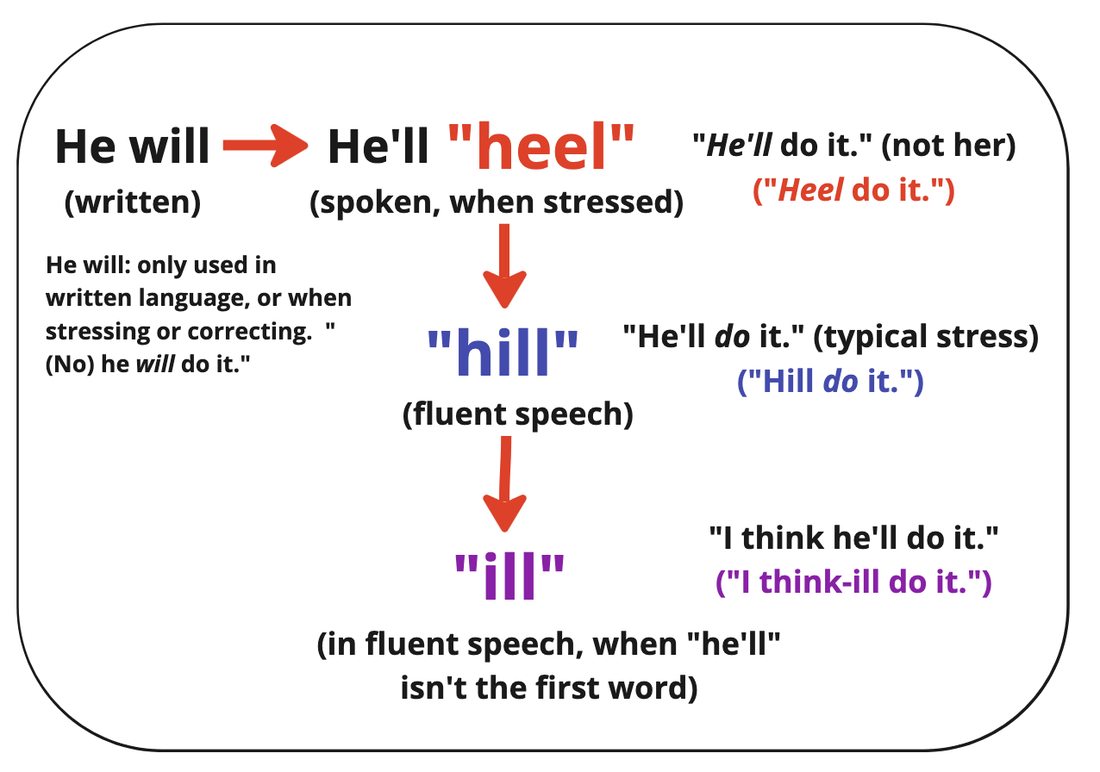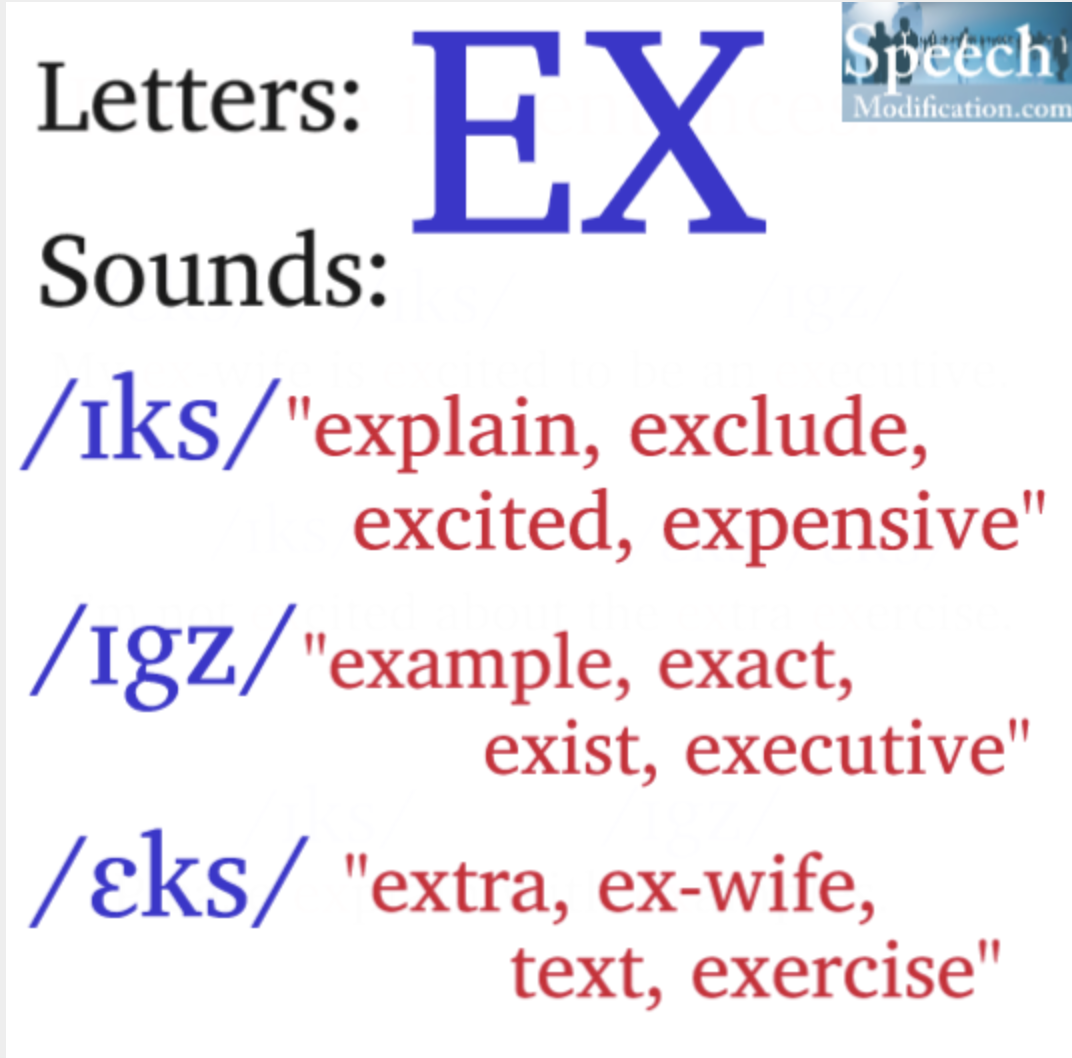|
Native English speakers often use a "bunched R" tongue position for the /r/ sound. The MRI image below shows one speaker's tongue position for the R sound.
Others use a retroflex, or curled back tongue, to achieve the R sound. In either case, the sides of the tongue brace against the teeth to create the stability and tongue tension needed for this sound. Learn more in our Sounds of English course.
0 Comments
Want to practice using "might have" and "might not have" in fluent speech? In this video, we look at how to contract these phrases, as well as the stress patterns to use for common phrases such as "might have had, might have been, might have done, and might have some."
Try saying these sentences using might've "MIGHduv" and might not've "migh(t)NAHduv":
I might have forgotten to turn off the lights. I might not have received your message yet. It might have been the best decision I ever made. He might not have done it without your help. You might have thought about going on vacation. They might not have realized how important it was. It might have been a misunderstanding. They might not have seen the email you sent. I might have thought I lost my keys. I might not have finished the project on time. Might have been a bit too ambitious with that plan. I might not have known about the changes. I might have thought about changing careers. I might not have understood the instructions correctly. Might have been a dream, I'm not sure. You might not noticed the difference at first. I might have thought of a better solution later. I might not have believed it if I hadn't seen it myself. She might have been the right place at the right time. I might not have realized how much time had passed.
Native speakers of American English typically don't say "he will." Instead, we use the contraction "he'll." It has 3 different pronunciations, depending on the context in which it is used.
|
Categories
All
Archives
May 2024
Have Questions?
Get A Free Consultation We offer a free 30-minute phone consultation. Schedule yours now. |








 RSS Feed
RSS Feed

